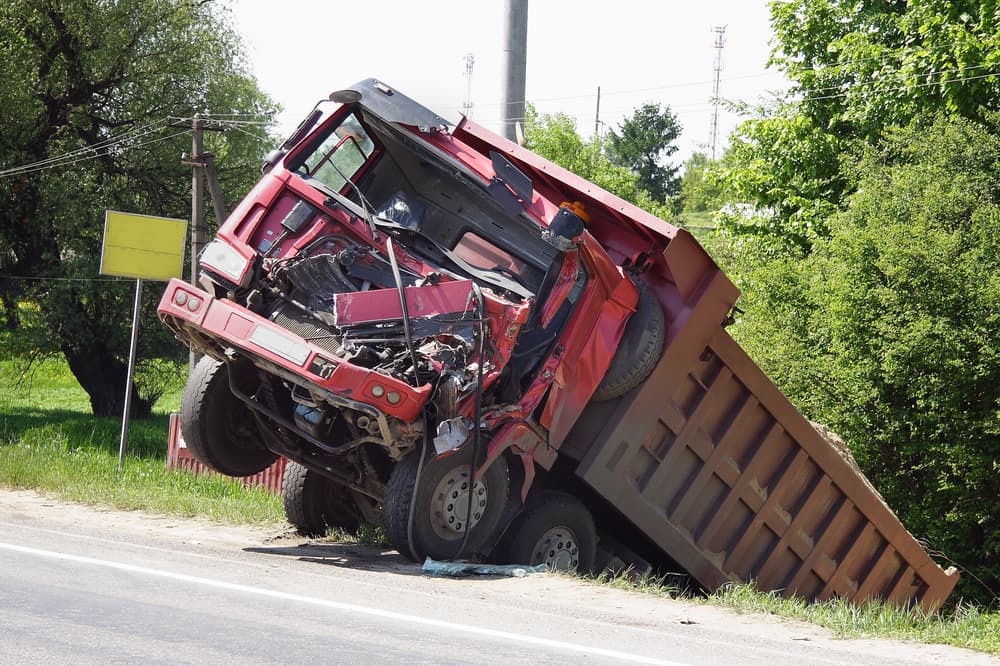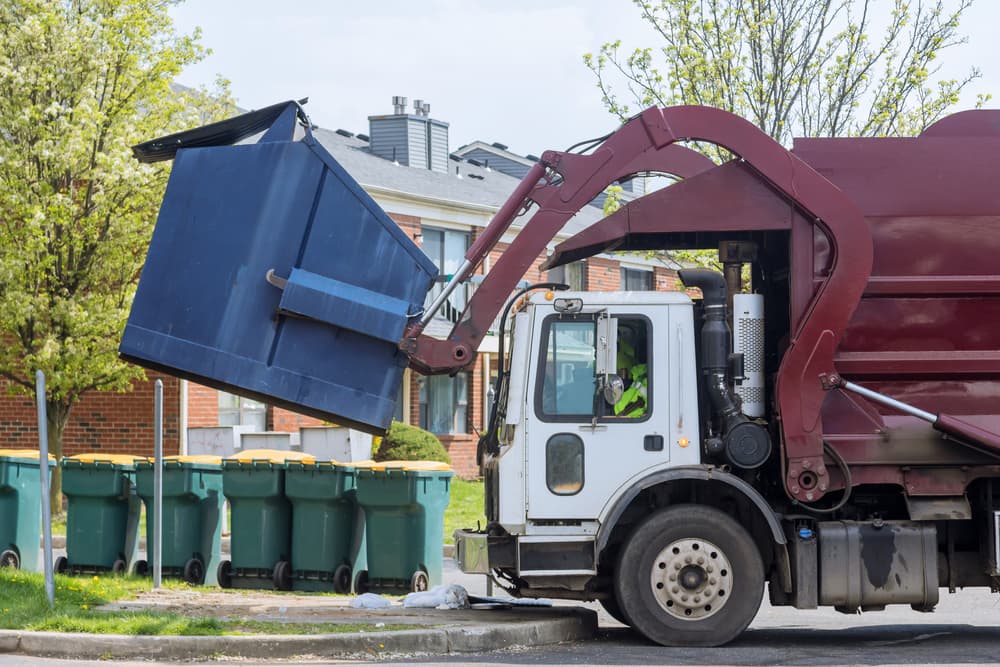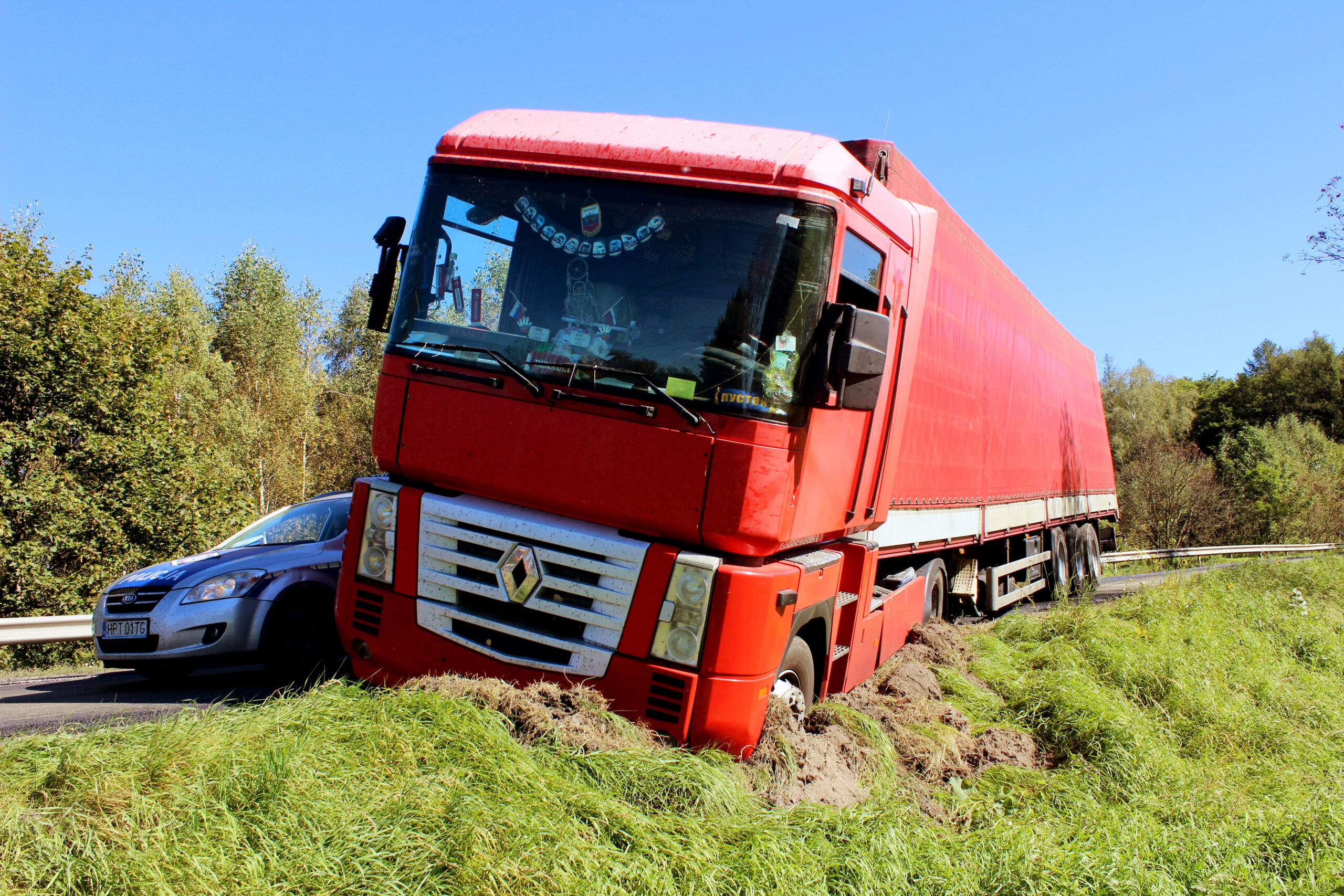Dump trucks and garbage trucks are very large, heavy vehicles with important functions. Additionally, cargo loads can easily fall off these trucks and into the middle of the roadway. When dump truck and garbage truck drivers — and their employers — violate road rules and fail to take the proper precautions, serious accidents may happen. Moreover, when a large vehicle hits a smaller passenger vehicle, motorcycle, or bicycle, the occupants or riders may suffer extremely serious injuries that require prolonged medical treatment.
If you or a person you love recently suffered injuries in a dump truck or garbage truck accident, you have legal options that you can consider. In addition to following through with your medical treatment regimen, you should immediately consult with an experienced truck accident attorney in your area.
Many accident victims are unsure of the legal steps that they should take to recover favorable monetary compensation for their injuries. Fortunately, a truck accident attorney can handle the legal aspects of your case while you work on getting better and making a full recovery. Also, your lawyer can handle all negotiations and interactions with insurance company representatives on your behalf. Finally, if your case must proceed to litigation or trial, your attorney can represent you during all necessary proceedings.
Schedule a Free Initial Consultation Today!
How Do Dump and Garbage Truck Accidents Happen?
Dump and garbage truck accidents can result from a combination of factors, often from human error, mechanical issues, or environmental conditions. One significant cause is driver negligence, where fatigue, distraction, or inadequate training play pivotal roles. Fatigue impairs a driver's reaction time and decision-making abilities, increasing the likelihood of accidents. Distractions, such as mobile phones or other electronic devices, divert a driver’s attention from the road, often contributing to the risk.

Insufficient training can also lead to improper handling of dump and garbage trucks, especially considering their large size and unique characteristics. Drivers must be well-versed in the vehicle's dynamics, loading/unloading procedures, lift mechanisms, and safety protocols to mitigate the chances of accidents. Inadequate training may result in overloading, improper securing of cargo, or misjudging clearances, all of which can lead to dangerous situations.
Mechanical failures represent another critical factor in dump and garbage truck accidents. Issues with brakes, tires, steering systems, or other crucial components can result in catastrophic consequences. Regular maintenance and thorough inspections are imperative to identifying and addressing potential mechanical issues before they escalate into accidents. Failing to adhere to maintenance schedules significantly heightens the risk of malfunctions during operation.
Environmental factors may also contribute to dump and garbage truck accidents. Adverse weather conditions, such as heavy rain, snow, or fog, can impair visibility and traction, making it challenging to navigate safely. Slippery roads increase the likelihood of skidding or tipping over, especially when combined with the inherent instability of a loaded dump or garbage truck. When drivers negligently speed in these conditions, they increase their chances of causing an accident.
Overloading also exacerbates the risks associated with dump and garbage truck operations. Exceeding the vehicle's weight capacity compromises stability and braking efficiency, making it more susceptible to rollovers or collisions. Proper loading procedures, adhering to weight limits, and effective cargo securing are essential measures to preventing truck overload accidents.
Traffic violations and reckless driving behaviors further compound the problem. Speeding, aggressive driving, and failing to obey traffic signals significantly elevate the risk of collisions involving dump and garbage trucks. Such behaviors can have severe consequences in congested urban areas, residential areas, and construction zones, where these vehicles are common.
Addressing dump and garbage truck accidents requires a comprehensive approach that includes enhanced driver training, rigorous maintenance practices, and heightened awareness of environmental conditions. If you suffered injuries in a dump or garbage truck accident that resulted from someone else’s negligence, you should consult with an experienced personal injury attorney right away about your legal rights and options. Your attorney can file a personal injury claim with the appropriate insurance company and pursue the financial damages you deserve for your injuries.
Injuries in Dump and Garbage Truck Accidents
Injuries resulting from truck accidents can be severe due to the sheer size and weight of these vehicles. Large trucks like tractor-trailers, dump trucks, and garbage trucks are commonly involved in accidents. The injuries sustained in truck accidents can vary widely, affecting drivers, passengers, and individuals in smaller vehicles involved in the collision.
One of the most prevalent injuries in truck accidents is whiplash. The abrupt deceleration or impact in a collision can cause the head to whip forward and backward, leading to neck strain. Whiplash injuries can range from mild discomfort to chronic pain, depending on the force of the impact.
Traumatic brain injuries (TBIs) are also a significant concern. The force of a truck collision can result in head injuries, even if the individuals involved are wearing seat belts. TBIs can range from concussions to more severe, long-term brain damage, impacting cognitive function, memory, and overall quality of life.
Spinal injuries are another category of injuries commonly associated with truck accidents. The sudden force of impact can cause fractures, herniated discs, or spinal cord injuries. These injuries may lead to chronic pain, paralysis, or long-term physical impairment.
Bone fractures are also prevalent in truck accidents, affecting limbs, ribs, and pelvis. The force of a collision or the crushing impact of a truck can lead to broken bones, necessitating immediate medical attention and often requiring surgery and extensive rehabilitation.
Internal injuries, for instance, organ damage or internal bleeding, can result from the impact of a truck accident. Even if there are no external signs of injury, the internal trauma can be life-threatening and may require emergency medical intervention.
Burn injuries may occur in truck accidents involving fire or explosions. Fuel leaks or flammable cargo can lead to fires, causing severe burns with long-lasting physical and psychological consequences for the victims.
Psychological trauma is also a significant aspect of injuries resulting from truck accidents. Survivors may experience post-traumatic stress disorder (PTSD), anxiety, or depression due to the emotional impact of an accident.
Pedestrians and cyclists involved in truck accidents often face particularly severe injuries due to the mismatch in size and weight between a large truck and a vulnerable road user. Catastrophic injuries, including loss of limbs or fatal injuries, are unfortunately common in these cases.
Addressing the prevention of truck accident injuries requires a holistic approach, including improved safety regulations, driver training programs, and public awareness campaigns. Additionally, prompt and effective emergency response and medical care are crucial to minimizing the long-term impact of injuries resulting from truck accidents.
How Do I File an Insurance Claim After an Accident?
Upon suffering injuries in a dump or garbage truck accident, you will typically deal with the insurance company for the at-fault driver or the company that employs the at-fault driver. To file an insurance claim, your lawyer will submit various types of documentation which may later serve as evidence in your case. That documentation may include copies of the police report the responding police officer prepared, medical bills, medical treatment records, operative reports, lost-wage documentation from your employer, and video footage of the accident.
Your lawyer can then organize a settlement demand package, which includes all this documentation, and send it to the insurance company adjuster handling your case. During settlement negotiations with the adjuster, your lawyer can focus on the high points of your case, including favorable medical records and testimony. If the insurance company refuses to make you a fair someone offer, your lawyer can file a lawsuit in the court system on your behalf. Even after filing a lawsuit, your attorney may continue settlement negotiations with the adjuster to resolve the case during litigation. If the case does not settle, your lawyer may take your case to a civil jury trial or alternative dispute resolution proceeding, such as mediation or binding arbitration.
What Happens at a Civil Jury Trial Arising from my Dump or Garbage Truck Accident?
In a jury trial, the legal proceedings revolve around determining liability, assessing damages, and delivering justice to those affected by the incident. The trial typically begins with the selection of a jury, a crucial process where attorneys from both sides carefully choose individuals who can impartially evaluate the evidence presented in the case.
The plaintiff – or the party who suffered injuries in the accident – presents their case first. This includes establishing the facts of the incident, demonstrating negligence on the part of the dump or garbage truck operator (or the entity responsible for maintenance), and proving causation between the negligence and the injuries or damages suffered. Evidence may include eyewitness testimony, expert opinions, accident reconstruction analyses, and documentation of any safety violations.
The defense, representing the dump or garbage truck operator or the involved entity, counters these claims by challenging the presented evidence, questioning witness credibility, and attempting to demonstrate that their client acted reasonably under the circumstances.
Throughout the trial, both sides engage in direct examination, cross-examination, and presentation of exhibits. The jury, composed of individuals from diverse backgrounds, listens attentively and ultimately decides the case's outcome. Their responsibility is to determine whether the defendant is liable for the injuries or damages alleged and, if so, the extent of monetary compensation that the plaintiff is entitled to recover for all of their accident-related injuries and losses.
Closing arguments are crucial moments where attorneys summarize their cases, emphasizing key points and urging the jury to render a favorable verdict for their respective clients. After deliberation, the jury reaches a decision, which can include an award for compensatory damages to cover medical expenses, lost income, emotional distress, and pain and suffering.
In essence, a jury trial is a meticulous legal process to fairly adjudicate disputes arising from such incidents, ensure accountability, and provide restitution to the injured accident victim. A knowledgeable truck accident lawyer in your area can aggressively represent you during all litigation proceedings in your case, including your civil jury trial.
Monetary Damages in Dump or Garbage Truck Accident Cases

Recovering monetary damages after a truck accident typically involves navigating a legal process that considers factors such as liability, damages incurred, and amounts of available insurance coverage. To be eligible for monetary damages, you first need to establish that the truck driver and/or the company that employs the driver violated their legal duty of reasonable care. You must also establish that due to the at-fault party’s negligence, the accident occurred in which you suffered at least one physical injury. If you can establish these legal elements of proof, you may be eligible to recover various types and amounts of monetary damages.
First, you can pursue monetary recovery for your economic losses, including medical expenses and lost income. Also, if the accident affected your ability to earn a living, you may bring a claim for loss of earning capacity.
Additionally, you may be eligible to pursue monetary compensation for your non-economic or intangible losses, including compensation for your mental distress, emotional anguish, physical pain and suffering, loss of spousal consortium, loss of the ability to use a body part, and loss of quality of life.
Your personal injury attorney can handle all communications with insurance company representatives and field settlement offers on your behalf. Your lawyer can also recommend whether accepting the pending settlement offer in your case is a good idea or exploring litigation options, such as a jury trial or ADR proceeding.
Call a Truck Accident Lawyer Today About Your Legal Rights and Options
If you sustained injuries in a dump truck or garbage truck accident, you need to consult a local personal injury attorney about your legal options immediately. Your attorney can review your accident and injury circumstances with you, file a personal injury claim with the insurance company on your behalf, or litigate your case through the state court system for an efficient resolution. Every step of the way, your attorney will be on your side, fighting for your interests and helping you maximize the monetary compensation you receive for all your accident-related injuries.



